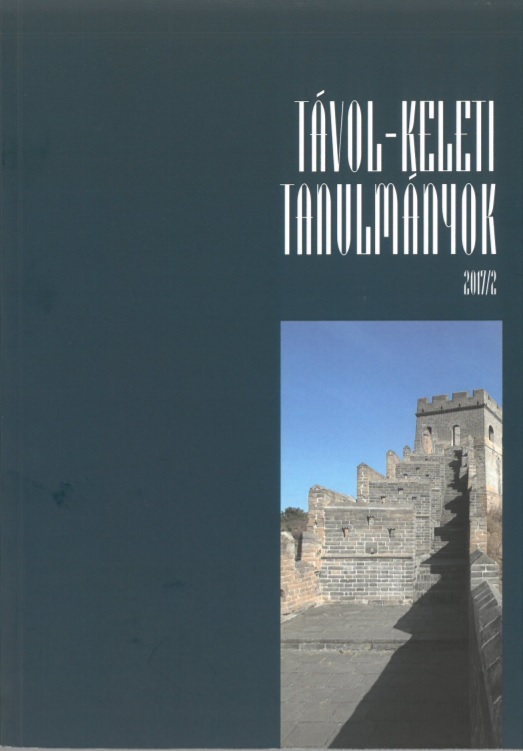Fordítva: Nyugati társadalomfilozófiai koncepciók és terminusok „japanizációja” a korai Meiji érában
Megjelent 2018-10-01
Hogyan kell idézni
Copyright (c) 2018 a szerző(k)

This work is licensed under a Creative Commons Attribution-NonCommercial 4.0 International License.
Absztrakt
Today there is a rather broad agreement on the field of Japanese studies regarding the fact that the main political, economic, social and cultural changes that characterise the Meiji 明治 era have their roots in the Tokugawa 徳川 period. This does not mean that changes following kaikoku 開国, the “opening of the country”, would have been consciously prepared during the shogunal reign. It means rather that those who reshaped the ideal and material framework of Meiji period changes, had never torn themselves away from Tokugawa traditions as much as it would seem at first sight, and as much as many of them suggested they had. In this study I examine the duality of (seemingly) radical novelty and strong attachment to traditions in the age of
bunmei kaika 文明開化 (“civilisation and enlightenment”) as reflected in the translations of Western social philosophical works and in related theoretical writings of the central figures of the period.
